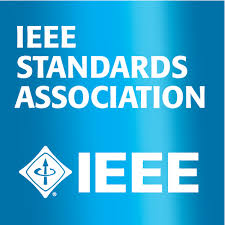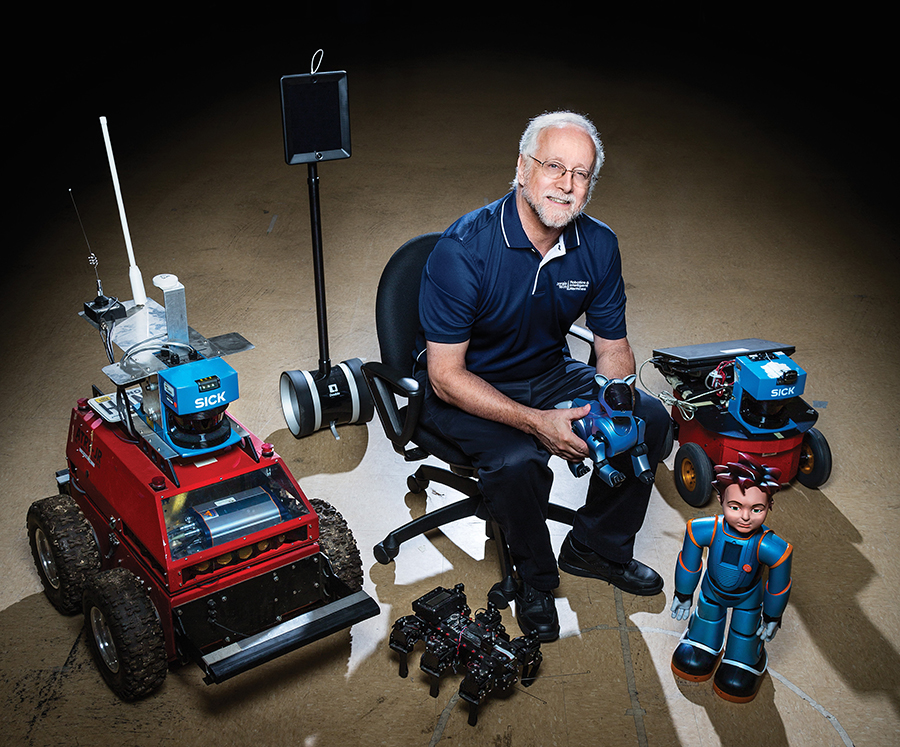
ROBOLAW.ASIA Research
机器人法律与伦理
日本经济产业省 自2004年起陆续发布一系列的机器人政策白皮书,政策所关注的范围包含 “下一代机器人”所涉及的商业机会和安全隐患等重大议题。他们预测一个 “人类-机器人共存社会”将在2030年前后到来。然而,下一代机器人融入人类日常生活之中是一个渐进式过程,我们相信智能机器人将会是继个人计算机以及互联网下一波的 变革性技术。
因此,我们创立了ROBOLAW.ASIA,试图探索人工智能与法律学科交叉范畴和从中伴随的新可能性。现阶段ROBOLAW.ASIA的研究重心在于讨论如何透过科技政策和公法规制将智能机器人的技术风险降低至可接受范围,在此议题上我们与欧盟第七框架科研项目:“机器人法律” 以及日本早稻田大学仿人机器人研究院保持密切合作关系。
一个浮现的问题是究竟我们应当对于智能机器人施以管制与否? 在目前法制框架下智能机器人仅仅是一种财产,或 ”第二的存在”,而这对于确保人类-机器人共存愿景下伴随的安全及道德风险来说是远不足够的。换而言之,未来机器人管制需要建立在将智能机器人视为 “第三的存在”,在此前提下智能机器人仍属于法律客体,并且在法律上获得和一般机械不同之差别对待。然而,其困难之处与19世纪大英帝国苦思如何对于新崛起的蒸汽动力汽车科技施以管制相似,皆属一种 “未知的调控” 。一方面,在缺乏适切管制下这些机械可能对于人类造成致命性的后果,例如经常发生的电梯或工业机器人安全事故。对于立法管制者而言,如何提升自己的思维洞见使其能和机器人科技发展趋势与时俱进可能是背后更大的挑战。何以管制者时常出现一种过度管制高新科技的保守立法倾向,在此不言而喻。
为了阻止在19世纪有摧残英国汽车工业恶法之称的 红旗法 (Red Flag Laws) 再度复辟于21世纪智能机器人时代,首先我们可以参酌的做法是在 机器人实证实验特区的基础上进行 ”去管制化” (Deregulation)。不论是机器人制造商或立法管制者,皆可在机器人实证实验特区内部自由进行各种测试,同时得以在产品投入市场的前一个阶段及早发现当初未能预期到的科技风险。
源自于东瀛日本,“Tokku” 机器人实证实验特区的制度发展推行虽然只有十余年历史,但该国目前已有系统地在福冈、大阪、岐阜、神奈川、筑波等地设置特区用于解决政府管制和私人商业、科研创新之间的潜在冲突。随着今后机器人科技对全球经济发展之相对重要性的提升,特区作为机器人与社会之缓冲接口的特质将更为显著。
此外,我们必须关注公法与管制的重要性。但当下的重点似非宪法层面的深层权利义务问题,即谈论究竟智能机器人是否属于法律主体或客体的体制性抽象法哲学思辨。对于问题之探索应该还是从务实面、基础面出发,例如围绕在高新智能机器人科技之设计、制造、销售、以及使用所发生的各种管制争议纠纷。而其中一种可能性是提倡 “机器人安全监管法”, 这是现存机械指令管制法规的延伸,这些
“技术法规” (Technical Norms) 作为机器人法律的基盘,将有效确保人类-机器人共存的新安全。
最后,机器人伦理和法律管制并非两不相干,从管制的角度出发,机器人法律正是机器人伦理和机器人工学的交集。在未来或许我们不需要替仿人机器人制定一套 新红旗法, 但这一切取决于我们面对 ”未知的调控” 时采取何种道德立场和具体行动。
Contribution:
01. Yueh-Hsuan Weng (2017) Towards Integrated Governance for Intelligent Robots: A Focus on Social System Design, in Proceedings of the 20th International Legal Informatics Symposium (IRIS 2017), Universität Salzburg, Austria, Page 191-198, Austrian Computer Society, February 2017, ISBN: 978-3-903035-15-7 [LINK]
02. Yueh-Hsuan Weng (2017) Case Study: Bad Actors and Service Robots, FHI-CESR-CFI Workshop on Bad Actors and Artificial Intelligence, 14:45-15:00, Littlegate House, Oxford, February 19th-20th 2017 [LINK]
03. Yueh-Hsuan Weng (2016) Robot Law 1.0: On Social System Design for Artificial Intelligence, 13:00-14:00, Small Moot Court, room 723, 7/F, Cheng Yu Tung Tower, Faculty of Law, The University of Hong Kong, January 16th 2017 [LINK]
04. Yueh-Hsuan Weng (2016) Regulation of Unknown: A Lesson from Japan’s Public Law and Policy for Next-Generation Robots, 1st Annual Conference of the Center for Law and Internet (CLI) Session: Ethics and technology, 15:20-16:30, West-Indisch Huis Amsterdam, November 17th 2016 [LINK]
05. Mady Delvaux-Stehres and Yueh-Hsuan Weng (2016) A European perspective on robot law: Interview with Mady Delvaux-Stehres, TECH and LAW Center & Robohub [LINK]
06. Yueh-Hsuan Weng (2016) Regulation of Unknown: A Lesson from Japan’s Public Law and Policy for Next-Generation Robots, 12:30-13:30, Room 623, 6/F, Cheng Yu Tung Tower, Faculty of Law, The University of Hong Kong, January 28th 2016 [LINK]
07. Christof Heyns, Gurvinder S. Virk, Yueh-Hsuan Weng (2015) An Exclusive Interview with UN and ISO experts in Robots and Regulation, TECH and LAW Center [LINK]
08. Yueh-Hsuan Weng (2015) O Direito para Robôs: A Regulação do Direito Robótico no Direito Público do Japão, 10:30-12:30, Sala de Vídeoconferência - 3° andar, UFPR - Universidade Federal do Paraná, Curitiba, November 20th 2015 [LINK]
09. Yueh-Hsuan Weng (2015) Regulation of Unknown: Does the Humanoid Robot “PEPPER” need Red Flag Laws?, TECH and LAW Center [LINK]
10. Yueh-Hsuan Weng (2015) Japan’s Robot Policy and the Special Zone for Regulating Next Generation Robots, TECH and LAW Center [LINK]
Figure 1. Risk Monitoring Mechanism: For short term consideration, a passive measurement to monitor the Open-Texture Risk.
Figure 2. Risk Control Mechanism: For Long term consideration, using active measurement to absorb the Open-Texture Risk.
11. Yueh-Hsuan Weng (2015) Japanese Public Policy for Robots and Regulation: An Example of "Tokku" Special Zone, 11:00-13:00, Sala Mansarda, Villa Schifanoia, European University Institute, Florence, April 28th 2015 [LINK]
12. Yueh-Hsuan Weng (2015) Robots and Society: On the Intersection of Special Zone, Robots, and the Law, 10:30-11:30, Via dei Barucci n° 20, ITTIG-CNR, Florence, March 26th 2015 [LINK]
13. Yueh-Hsuan Weng, Yusuke Sugahara, Kenji Hashimoto, Atsuo Takanishi (2015) Intersection of “Tokku” Special Zone, Robots, and the Law: A Case Study on Legal Impacts to Humanoid Robots, International Journal of Social Robotics, Vol. 7, No. 5, Page 841-857, Springer Netherlandsa [LINK]
14. Yueh-Hsuan Weng, Gurvinder S. Virk, Shuping Yang (2015) The Safety for Human-Robot Co-Existing: On New ISO 13482 Safety Standard for Service Robots, Internet Law Review, Vol. 17, Page 229-244, Peking University Press [LINK]
15. Yueh-Hsuan Weng (2014) Introduction to Applications and Challenges of Emerging Technologies, Master Course: The Laws of Cyberspace, 10:00-12:00, Room 121, TSMC Building, National Tsing Hua University, Hsinchu, December 11th 2014
16. Yueh-Hsuan Weng, Dominic Hillenbrand (2014) The Intelligentization of Automobiles: Smart-Cars, Robo-Cars and their Safety Governance, Journal of Science, Technology and Law (STL), No.4, General Issue 110, Page 632-646, 2014 [LINK]
17. Yueh-Hsuan Weng (2014) The Study of Safety Governance for Service Robots: On Open-Texture Risk, Ph.D. Dissertation, Peking University Law School, Beijing, May, 2014 [LINK]
18. Yueh-Hsuan Weng (2014) A Review on Military Robots and Warfare, PKU Internet Law Watch, Vol. 10, No. 4
19. Yueh-Hsuan Weng (2014) The Robot - Technology, Ethics and Law, PKU Internet Law Watch, Vol. 10, No. 3
20. Yueh-Hsuan Weng (2014) Robots - A Historical Review, PKU Internet Law Watch, Vol. 10, No. 2
21. Yueh-Hsuan Weng (2013) Special Interview on “Robot Law in Europe” - with Prof. Dr. Eric Hilgendorf, ROBOLAW.ASIA Initiative [LINK]
22. Yueh-Hsuan Weng (2013) Special Interview on “Law and Drone Warfare” - with Prof. Dr. Christof Heyns
, ROBOLAW.ASIA Initiative [LINK]
23. Yueh-Hsuan Weng, Sophie T.H. Zhao (2012) The Legal Challenges of Networked Robotics: From the Safety Intelligence Perspective, M. Palmirani et al. (Eds.), Lecture Notes in Computer Science(LNCS): AI Approaches to the Complexity of Legal Systems, Vol. 7639, Page 61-72, Springer Berlin Heidelberg [LINK]
24. Yueh-Hsuan Weng (2012-2014) Supporting External Network, EU FP7 Project: ROBOLAW, Scuola Superiore Sant’Anna, Pisa, Italy, June 2012 - September 2014 [LINK]
25. Yueh-Hsuan Weng (2012) Yahoo! Research Grant, “The Internet of Things and Automation: Legislation and Policy Research”, PKU-Yahoo! Internet Law Center
26. Yueh-Hsuan Weng (2012) (1) The Internet of Things and Automation: Overlapping the Real and Virtual Worlds, PKU Internet Law Watch, Vol. 8, No. 5
27. Yueh-Hsuan Weng (2012) (2) Intelligent Transportation: Addressing the Liability Impact of Automated Systems: with Prof. Dr. Giovanni Sartor and Dr. Giuseppe Contissa, PKU Internet Law Watch, Vol. 8, No. 5
28. Yueh-Hsuan Weng (2012) (4) Social Robots: Robot Companions for Citizens: with Prof. Dr. Paolo Dario, PKU Internet Law Watch, Vol. 8, No. 5
29. Yueh-Hsuan Weng (2012) Law & Networked Robotics: Some legal Issues on the Internet of Things, Aula 6, 12:00-15:00, SSSA Seminar, Scuola Superiore Sant’Anna, Pisa, June 6th 2012
30. Yueh-Hsuan Weng, Sophie T.H. Zhao (2011) The Legal Challenges of Networked Robotics: From the Safety Intelligence Perspective, XXV. IVR World Congress on Philosophy of Law and Social Philosophy Special Workshop on AICOL, (16:00~16:20) Room HZ 8, Building N.4, Goethe-Universität Frankfurt, Frankfurt am Main, 15th August 2011 [LINK]
31. Yueh-Hsuan Weng (2011) Networked Robots: A Brief Look at Its Possible Legal Implications, IEEE International Conference on Robotics and Automation (IEEE ICRA’11) Workshop on Roboethics, (16:30~17:00) Room 5B, SHICC, Shanghai, 13th May 2011 [PDF]
32. Yueh-Hsuan Weng (2011) The Open-Texture Risk in the Human-Robot Co-Existence Society: A Review on “Open Robotics”, Internet Law Review, Vol. 13, Peking University Press [LINK]
33. Yueh-Hsuan Weng (2009) Toward The Human-Robot Co-Existence Society: On Legislative Consortium for Social Robotics, IEEE International Conference on Robotics and Automation (IEEE ICRA’09) Workshop on Legal and Safety Issues Related to Autonomous Networked Robots Operating in Urban Environments, (10:40~11:05) Room 404, Kobe International Convention Center, Kobe, 13th May 2009 [LINK]
34. Yueh-Hsuan Weng, Chien-Hsun Chen and Cheun-Tsai Sun (2007) The Legal Crisis of Next Generation Robots: On Safety Intelligence, Paper presented on The Eleventh International Conference on Artificial Intelligence and Law (ICAIL'07). Stanford Law School, Palo Alto, California, USA [ Acceptance Rate: 26% ] [PDF]





